Workforce & Learning Pathways In A Period Of Dynamic Change
WORKFORCE & LEARNING PATHWAYS IN A PERIOD OF DYNAMIC CHANGE
October 6, 2017, 8:30am to 5:30 pm
Stanford University, Arrillaga Alumni Center
The pipelines for highly skilled talent are global. Around the world, organizations compete aggressively to recruit the best and the brightest minds to invent a digital transformation.
The pathways into many of these pipelines are local. Opportunities open up through family involvement, community choices, and mindsets for the future. These vary widely from one locale to another.
There is a shortage of highly skilled talent for the digital transformation. Some workers are now falling out of the workforce because they lack means to upgrade to the digital mindset and technologies. The pipeline of young STEM-savvy talent is not sufficient. Access to global talent, once a panacea for Silicon Valley and other high tech hubs, is now constrained. Productive citizens, high performing employees and a fluid exchange of information are all essential for a high performance future. Organizations and nations without a pipeline of highly skilled talent are vulnerable.
The challenges of the coming transformation are diverse. The forces for education and employment are shifting. Changes made today will, in all likelihood, take several years to show impact. The need for change is urgent, and creative leadership is a necessity.
Join us on October 6th as thought leaders from the mediaX community discuss:
*Poverty, Mobility and Displacement in the U.S.
*Global economic, social and political impact
*System Experiments for a Competitive Workforce
*Perspectives on the Opportunities
*Market-Shaping Forces and Responses
*Financing the Transformation
*Experiments with Extensible Insights
*Experiments with Promising ROI
*Pathways for Mobility
Participate in the conversation. Contribute your perspectives.
Never Miss An Event; Join Our Email Community
Presenters
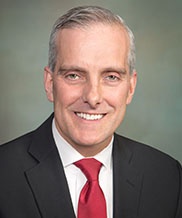
Denis McDonough. From February 2013 until January 20, 2017, McDonough served as White House Chief of Staff for President Obama. In that role, McDonough managed the four thousand member White House staff, as well as Cabinet Secretaries and agency leaders. He provided strategic advice to the President on the most significant domestic policy, national security, and management issues facing the federal government and enforced plans and accountability for performance and goals, maintaining the Obama Administration’s reputation for effective, ethical operation. He planned and coordinated efforts to recruit and retain key talent—including an unprecedented expansion of technology experts, engineers, and content generators within the White House and across the federal government.
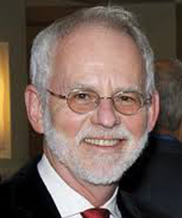
Roy Pea is the David Jacks Professor of Education and the Learning Sciences at Stanford University, Co-Founder and Faculty Director of the H-STAR Institute, Director of the PhD Program in Learning Sciences and Technology Design, and Professor, Computer Science (Courtesy). Since 1981, Dr. Pea has been exploring how information technologies can support and advance the scientific understanding and practices of learning and teaching, with particular focus on topics in science, mathematics, and technology education and their associated symbolic and communicative interchanges that are integral to learning.
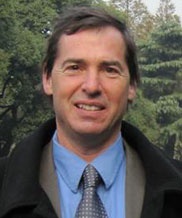
David B. Grusky is the Barbara Kimball Browning Professor of Sociology at Stanford University, Director of the Center on Poverty and Inequality (CPI), Director of the California Welfare Laboratory, Director of Recession Trends, and coeditor of Pathways Magazine and the Social Inequality Series. He is a Fellow of the American Association for the Advancement of Science, co-recipient of the 2004 Max Weber Award, founder of the Cornell University Center for the Study of Inequality, and a former Presidential Young Investigator.
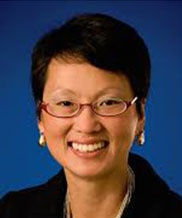
Van Ton-Quinlivan is a nationally recognized thought leader in workforce development with a proven track record for implementing large-scale system change. Appointed by the governor in 2011 as vice chancellor of Workforce & Economic Development, she oversees federal and state funding that advance the workforce mission across California’s 113 community colleges, one of the largest and most complex higher education system in the nation. Her administrative responsibility has grown to $900 million from an initial $100 million in program funds as a result of her ability to inspire others toward a common, unifying vision.
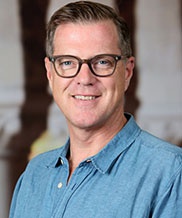
Mitchell Stevens is Associate Professor of Education and (by courtesy) Organizational Behavior and Sociology at Stanford. He studies the organization of US higher education, the quantification of academic performance, and alternative school forms. The author of prize-winning studies of home education and selective college admissions, he currently is writing a book about how US research universities organize research and teaching about the rest of the world. He serves as the third Director of the Scandinavian Consortium for Organizational Research, a cooperative institution that has brought more than 500 scholars to Stanford over a quarter century and catalyzes organizational scholarship worldwide.
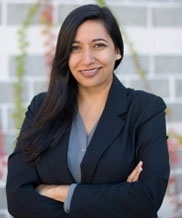
Tara Behrend is Associate Professor of Industrial-Organizational Psychology. Her research interests center around understanding and resolving barriers to computer-mediated work effectiveness, especially in the areas of training, recruitment, and selection. She is also interested in career decision-making, specifically relating to STEM fields; her work in this area is funded by a research grant from the National Science Foundation. She provides psychometric consulting for the American Council on Education and has consulted for a wide range of public and private organizations in the areas of training, skills development and selection.
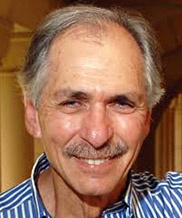
Martin Carnoy is the Vida Jacks Professor of Education at Stanford University School of Education. Dr. Carnoy is a labor economist with a special interest in the relation between the economy and the educational system. To this end, he studies the US labor market, including the role in that relation of race, ethnicity, and gender, the US educational system, and systems in many other countries. He uses comparative analysis to understand how education influences productivity and economic growth, and, in turn, how and why educational systems change over time, and why some countries educational systems are marked by better student performance than others'.
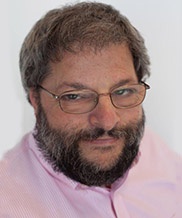
Alex Kass has over 30 years of experience working at the intersection of technology, human learning, and human performance. He currently helps lead the Digital Experiences group within Accenture Labs, with a focus on the impact of technology on the future of work. He helps Accenture and its enterprise clients leverage technology to re-imagine how individuals, teams, and organizations get work done. His team contributes to all phases of the innovation lifecycle, from producing early-stage thought leadership, to technical research, patentable invention, live pilots, and at-scale implementation of new approaches. The biggest focus in recent years has been on bringing the crowdsourced “Liquid Workforce” to life.
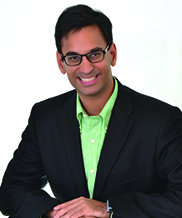
Aman Kumar is Head of Operations Innovation in the Office of the CFO at SAP SE, where he focuses on consumerization, simplification, and business agility. He is also special advisor to the CIO of the Republic of Estonia and advisor to startups in Silicon Valley and Boston. Aman was previously the head of strategic marketing at MobileIron, Inc., an enterprise mobile startup in Silicon Valley. Working with the CEO and executive team, he was responsible for strategic planning, consumer product definition, and application partnerships for the organization before its IPO in 2014.
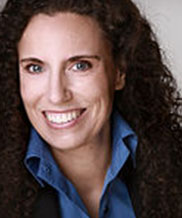
Sabine Remdisch is a Professor of Personnel and Organizational Psychology and Head of the Institute for Performance Management at Leuphana University Lüneburg. Her current focus is leadership and working in the digital world. She is a guest researcher at the H-STAR Institute at Stanford University, Silicon Valley, and is a member of the Leadership Garage. She teaches leadership, personnel development and coaching. It accompanies companies in the field of digital change and the development of a digital corporate culture.
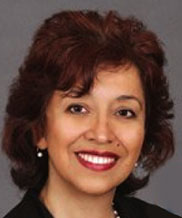
Sima Yazdani is a Senior Technical Leader, Chief Data Scientist at Learning@Cisco at Cisco Services, where she leads Cisco Collaborative Knowledge Cognitive Analytics, team helping enterprise users as learners, mentor and training partners with their personalize knowledge discovery and recommendation services. She has 30+ years of experience in Database technology, system architecture, analytics, Business Process Optimization, Semantic technologies, cloud computing and machine learning in a variety of industries, including IT, learning, health, and workforce professional development.
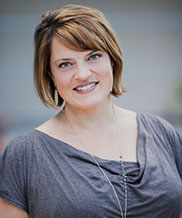
Kristin Campbell Reed leads Corporate and Employee Giving at Genentech, overseeing strategy and operations for charitable giving, employee volunteerism and matching, and local and national citizenship programs such as Futurelab. She has a passion for learning, identifying connections and building new things. Prior to Genentech, she spent nearly a decade as an award-winning healthcare journalist at Bloomberg News. Among other highlights, Kristin led Bloomberg’s entry into general science coverage, and was named to NewsBios’ “30 Under 30” list for financial reporting.
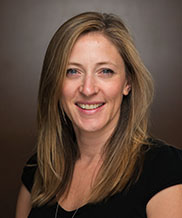
Charlotte Fenner is a Director of Partner Resources at Starbucks Coffee Company, based in San Francisco. During her career she has worked for global brands in the UK, The Netherlands, Germany and Australia. Prior to the Bay Area, Charlotte spent 3 years as the Director of Global Leadership Development at Starbucks headquarters in Seattle. Charlotte is currently responsible for supporting the Northern California business, and is specifically focused on the attraction, retention and development of talent in competitive urban markets.
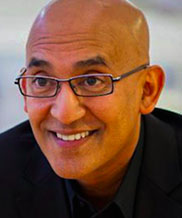
Banny Banerjee is Director of Stanford ChangeLabs, and teaches Design Innovation and Strategy at the Hasso Plattner Institute of Design (Stanford University's d.school). His area of expertise is the use of Design Thinking for strategic initiatives and large-scale transformations directed towards sustainable futures. He founded Stanford ChangeLabs, which has ongoing research in Innovation Methodologies and transdisciplinary initiatives aimed at developing a new field: Innovation of Scaled Transformations. His research initiatives are centered on processes, paradigms, and integrated strategies to address complex challenges such as the future of water, energy, governance systems, and organizational transformations.
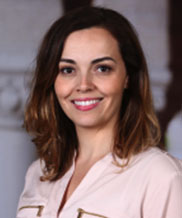
Raquel Coelho is a PhD student and Lemann Fellow at Stanford Graduate School of Education. She holds a M.A. degree in International Comparative Education from Stanford University and an undergraduate degree in Portuguese Language and Brazilian Literature from the Federal University of Minas Gerais, Brazil. Over the past ten years, she has taught and tutored children, youths, and adults in formal and informal settings within both public and private sectors of Brazil, Czech Republic, and the United States. Raquel is particularly interested in helping students - especially those in public and under-resourced schools - to communicate ethically and persuasively.
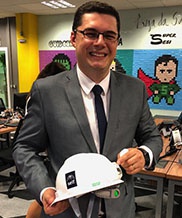
Marcelo Tournier is Director of SESI (Social Service of Industry) Innovation Center for Health Technologies. SESI Santa Catarina is a private, non-profit organization responsible for education and wellbeing programs for almost one million manufacturing employees in Brazil, improving working conditions and productivity. Marcelo supports a multi-cultural network with more than 20 countries and Brazilian Governmental Entities related to wellbeing and Innovation. Now, he is helping the ecosystem to connect insights from various sources, amalgamating them into new solutions to build a skilled, resilient and healthy workforce.